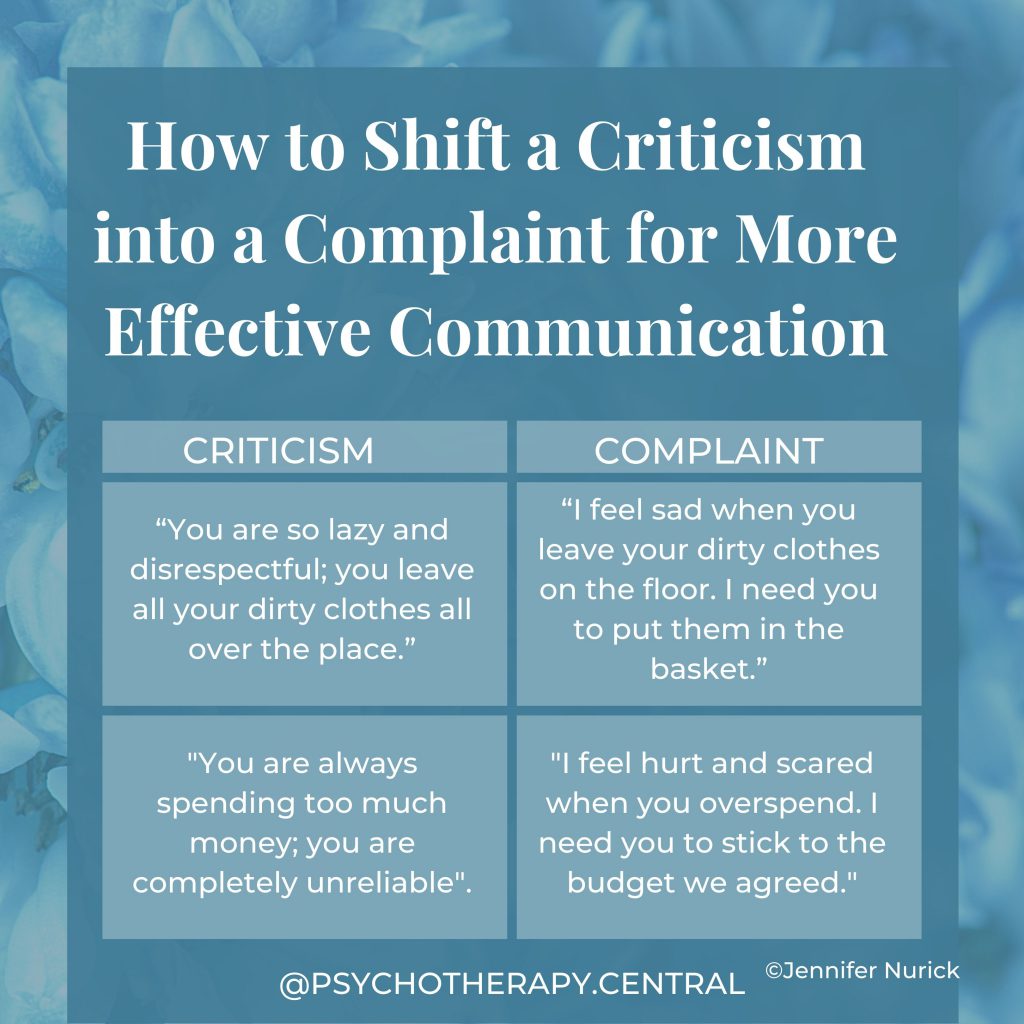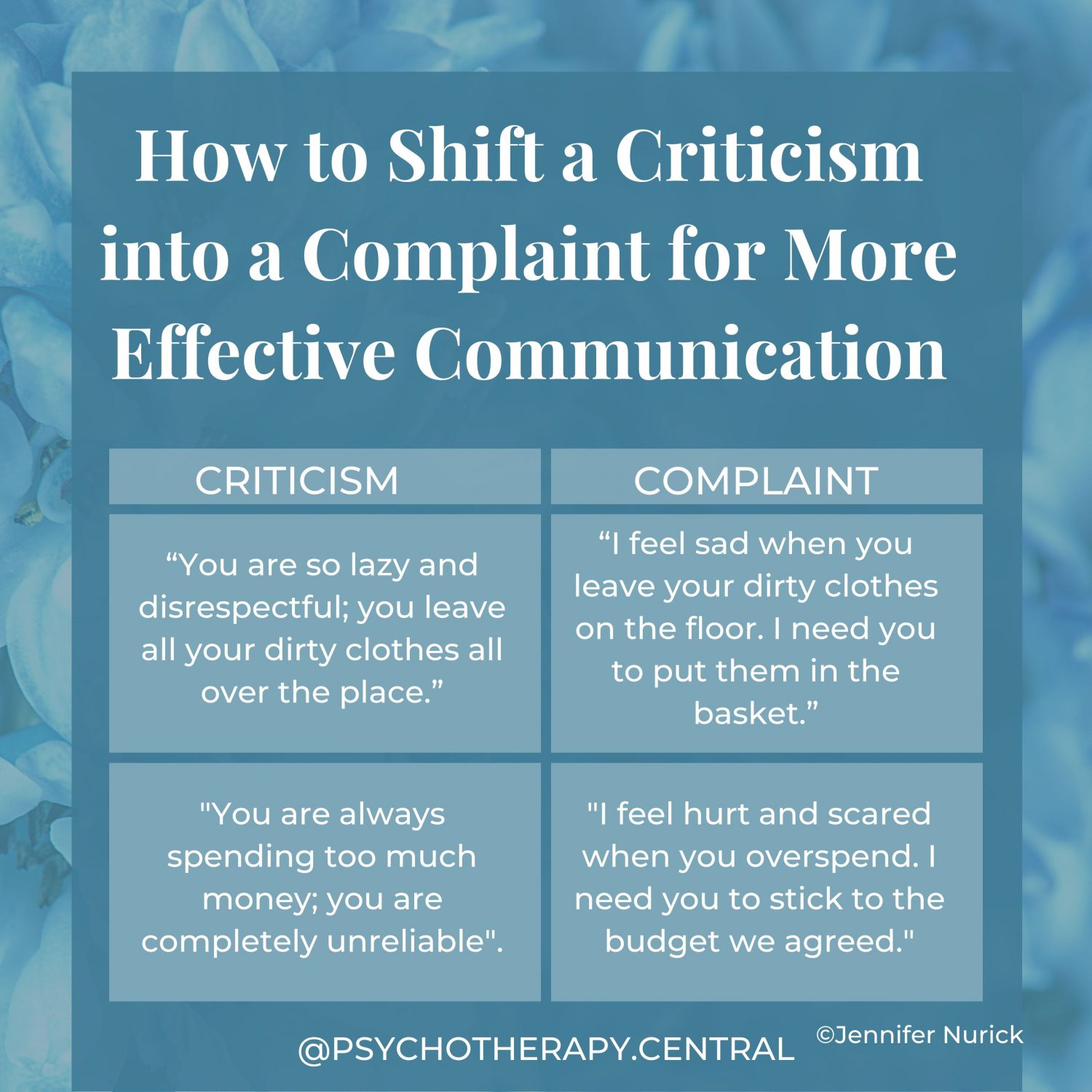If you grew up with a lot of criticism around you, as an adult it is likely that you have a loud critical voice in your head. Usually that critical voice is directed inwards, but in intimate relationships, many people find that the critical voice starts to come out towards their partner, creating disconnection.
Criticism usually grows out of the fertile soil of not feeling heard. You explain over and over, you talk, you discuss, but nothing changes. Over time your communication becomes critical, you hear yourselves talking like your parents and saying things that you know are mean and unkind. The next thing you know, you are in a rut. You are being critical, and they are being defensive.
When you recognise this situation, this is the moment of power. Now you know you are doing it, you have a choice to continue, or to shift the way you are communicating.
Remember to use ‘I’ statements. “I feel ____________, when ____________happens. I need ____________”.
Notice how much softer you feel when you use the ‘I’ statements. When we are in “You” mode, we are able to be much harsher, when we switch it to “I” and stay focused on our real feelings, a softness comes into the situation.
I am always struck by how misleading conflicts can be. It might be that the conflict is over dirty clothes being left around the house, but when you tune into your feelings around it, it makes you feel unappreciated. Where else have you felt unappreciated? Is this something your mother or father felt? What would you need to feel appreciated?
Love, Jen

___
Reference Gottman research: “The Seven Principles for Making Marriage Work” (1999).
